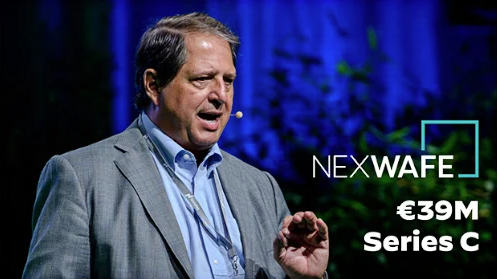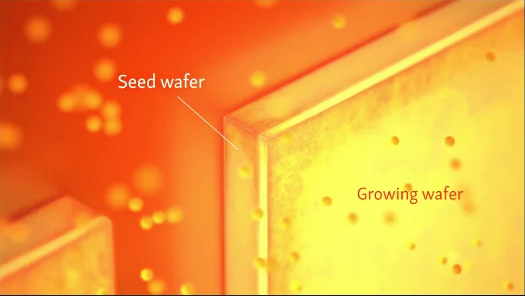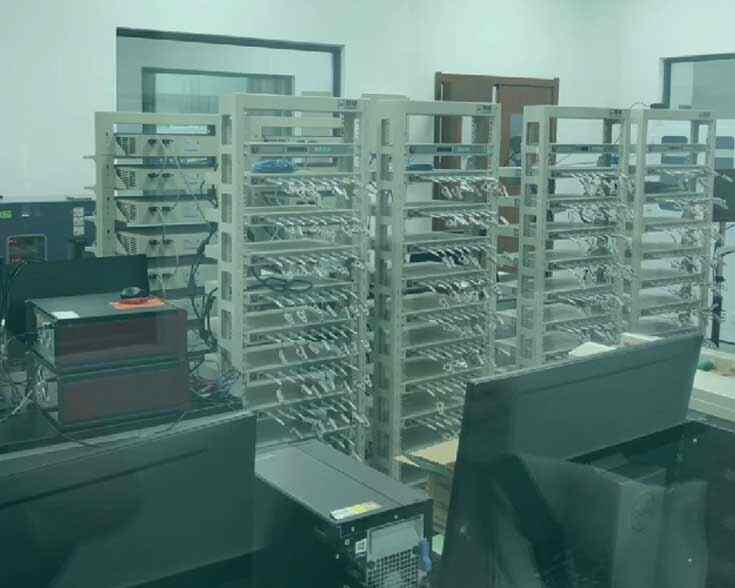Artical from: https://eepower.com/news/nexwafe-raises-funds-for-its-low-cost-green-silicon-wafer-technology/
NexWafe receives €39 million in funding to further develop its green solar wafer technology for large-scale production.
NexWafe GmbH is a specialist in the manufacture and supply of ultra-thin, high-efficiency, monocrystalline green solar wafers. The company uses a proprietary green silicon manufacturing process to construct its wafers which reduces production costs and focuses on enhancing wafer efficiency. Recently, NexWafe announced that it had raised €39 million in funds for its silicon epitaxy technology and signed a deal to build a wafer gigafactory in India. The company intends to scale up its technology for use worldwide and set a new standard for the future of photovoltaic wafer production.

Image used courtesy of Ecosummit
NexWafe and EpiNex
NexWafe is a German-based company that was founded in 2015 by Stefan Reber, Head of the Crystalline Silicon Materials Department at the Fraunhofer Institute for Solar Energy Systems ISE, and Frank Siebke, an expert in the solar energy sector.

NexWafe’s EpiWafer process might be able to reduce CO2 emissions by up to 70% and wafer costs by up to 30%. Image used courtesy of NexWafe
NexWafe’s EpiWafer process involves the deposition of a crystalline silicon layer directly onto a kerfless wafer, which is then detached. Kerfless wafering is a manufacturing process that can produce very thin wafers of silicon from a crystal ingot while minimizing waste. NexWafe’s EpiWafer process allows EpiNex wafers to be made with precise thickness tolerances and avoids the energy-intensive intermediate steps of traditional wafer manufacturing (such as polysilicon production and ingot pulling). The company claims that its direct gas-to-wafer production process can reduce CO2 emissions by up to 70% and wafer costs by up to 30%. The company is known for its world-record-breaking ability to detach 50-micron wafers. By 2024, the company intends to begin high-volume manufacturing of ultra-thin wafers (of < 90 microns in thickness).
The Investors
Reliance New Energy Solar (RNSL) led the Series C funding round. The wholly-owned subsidiary of Reliance Industry in India invested €25 million. Other investors included Saudi Aramco Energy Ventures, Innoenergy, and existing investors. With the funds provided, Nexwafe plans to develop and market its green solar wafer manufacturing technology.
RNSL and NexWafe have also entered into an India Strategic Partnership Agreement to develop the technology, at scale. For RNSL this means that it will have access to NexWafe’s proprietary technology. RNSL also plans to build large-scale wafer manufacturing facilities in India using the NexWafe processes and technology. This will allow RNSL to reduce its reliance on receiving wafers from China.
Support from RNSL will allow NexWafe to accelerate product and technology development, as well as push forward the completion of the commercial development of the latter company’s solar photovoltaic products on prototype lines in Freiburg, Germany. Overall, the goal is to strengthen the economics and sustainability of photovoltaic systems made in India and other countries across the world. At present, green wafer technology is one solution among many that could help tackle climate change to safeguard future generations.






 live:.cid.e6da7ea6b7fae01e
live:.cid.e6da7ea6b7fae01e






















 Global - English
Global - English